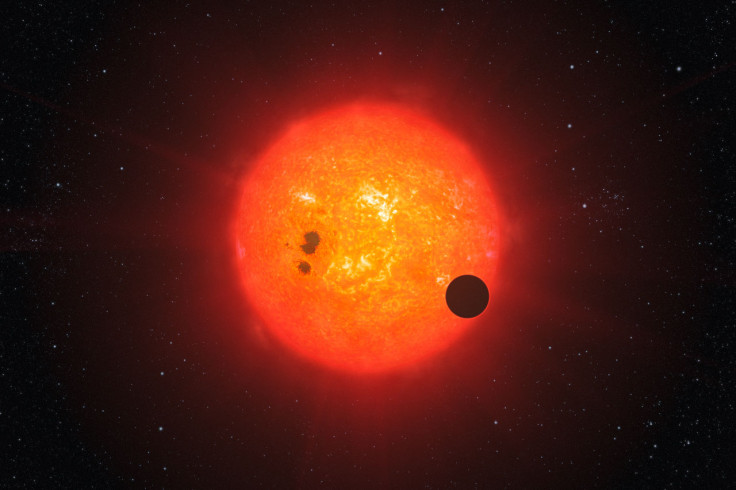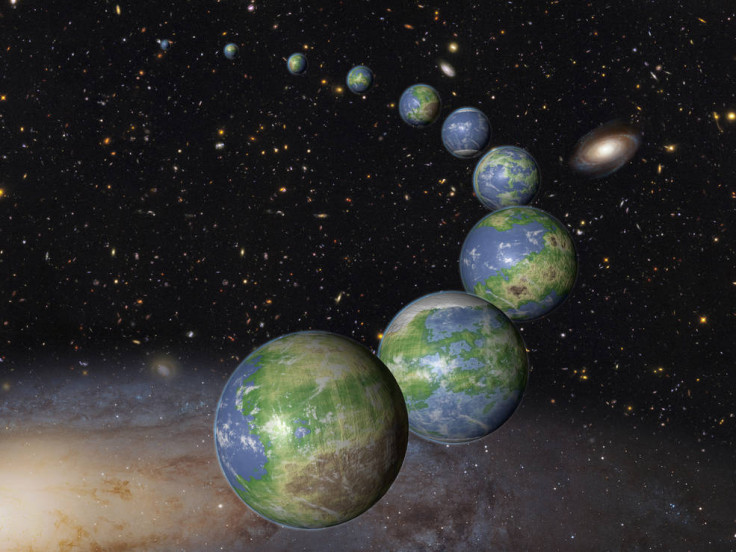92% of habitable planets 'yet to form': Future alien civilisations would be 'clueless' about how universe began

About 92% of the potentially habitable planets in the universe are yet to be born, and in a trillion years any arising alien civilisation would be completely clueless about how the universe began, say scientists. Using data collected by Nasa's Hubble Space Telescope and the Kepler space observatory, researchers said Earth appears to be an early addition in the evolution of the universe – with far more similar planets yet to come.
The scientists, from the Space Telescope Science Institute (STScI) in Baltimore, published their findings in the Monthly Notices of the Royal Astronomical Society. In it, they used Hubble data to create a sort of family tree of the universe. They were able to chart the universe's star formation as galaxies grew, showing how stars were created thick and fast 10 billion years ago, but at this time the amount of hydrogen and helium involved in their creation was very low. This meant they had short and violent lives.
Nowadays, stars are born at a far slower rate, but there is lots of leftover gas from the Big Bang so the universe will continue to create stars for a long time to come – the last star is predicted to burn out around 100 trillion years from now. "There is enough remaining material [after the Big Bang] to produce even more planets in the future, in the Milky Way and beyond," said co-investigator Molly Peeples.
The Kepler planet survey suggests that there are many worlds sitting in the habitable zone (the distance from its star where it is warm enough to allow for liquid water) of their solar systems. Researchers believe there should be about one billion Earth-sized worlds in the Milky Way, with many of these expected to be rocky. But there are around 100 billion other galaxies in the observable universe, providing plenty of opportunity for life to form elsewhere.

The scientists say most future Earth-like worlds will probably appear inside giant galaxy clusters and dwarf galaxies because they are yet to use up all the gas they need to birth new stars and planetary systems. "If existing gas within virialised dark matter haloes continues to collapse and form stars and planets, the universe will form over 10 times more planets than currently exist," they authors wrote. "We show that this would imply at least a 92% chance that we are not the only civilization the universe will ever have, independent of arguments involving the Drake equation."
Study author Peter Behroozi said: "Our main motivation was understanding the Earth's place in the context of the rest of the universe. Compared to all the planets that will ever form in the universe, the Earth is actually quite early."
One big advantage of this early start is that we are able to look back at how the universe began. Using powerful telescopes like Hubble and those currently being developed across the world. The Square Kilometre Array (SKA) telescope, for example, is expected to be operational by 2024. This will be the largest and most sensitive radio telescope ever made and will allow astronomers to detect incredibly faint signals.
These telescopes allow us to trace back through the evolution of galaxies to the start of the universe through light and electromagnetic radiation – possibly back to the primordial gravitational waves thought to have been released at the Big Bang. But all traces of this will be erased in the next trillion years because of the expansion of space.
So any future alien civilisation born after these waves are gone will never be able to work out what happened at the very beginning: "Any far-future civilizations that might arise will be largely clueless as to how or if the universe began and evolved," Nasa said in a statement.
© Copyright IBTimes 2025. All rights reserved.






















